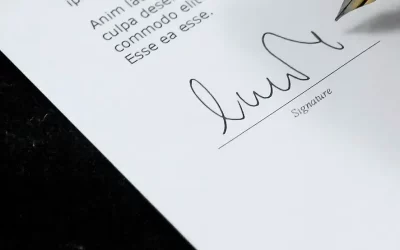
As you get older, it is important to begin thinking about how you want your estate to be handled in the event of your death. Over time you collect assets like your house, car, stocks, bonds, and cash. You spend your whole life building up these assets, so it is smart to plan for how you are going to pass them on. There are two common methods for passing on your estate: wills and trusts. Both methods have their positives and negatives, and that is what we will be discussing in this blog.
To begin, what is the difference between a will and a trust? A will is essentially instructions for how you want your assets to be passed to your beneficiaries. Wills are not as complex as trusts and can be a great option for transferring your estate. They are more simple to make than a trust, requiring just two witnesses that aren’t in the will. Wills are also a good idea if you have children under the age of 18, unlike trusts, wills let you name a guardian for your child. A carefully drafted trust package will always include a will, often called a pour-over-will.
There are some negatives to wills that aren’t found in trusts. The biggest one is going to be probate court. Probate court is designed to finalize a person’s affairs after their debts have been paid. It can, unfortunately, be an arduous and expensive process. Wills are also made public after your death, so people can see all the assets you had and where you left them. Trusts avoid Probate, and they are kept private.
This brings us to trusts, and what a trust is. Trusts are going to be more complex to make but give you a lot of control over your assets. Trusts involve moving your assets into the trust and naming the owner of the property as the trust. With trusts, you appoint a trustee to manage the trust which can be you or later be someone you appoint to run it after you have passed away or can no longer manage it yourself. Trusts give you more control than wills, for example, in the trust, when you leave money for children, you can specify at what age they get the money and even how they receive the money. Wills do not give you that kind of specificity. Unlike wills, trusts also avoid probate court and are kept private even after your death.
Trusts are great if you want to protect for your family and you have assets over $1,000,000, which is often satisfied by owning a home or having a life insurance policy. Unlike a will, trusts revolve around the property that is moved into the trust. So, any property not in the trust will likely be settled by the court, which is why the pour-over-will is needed.
It is good to think about making a will, even if you already have a trust. The will can cover all the property, not in the trust, and while it will still go through probate court, it lets you name where the property not in the trust will go, so it’s not just up to the court and Nevada intestate laws.
If you are wondering which avenue you should take, call our Reno law firm today at (775) 210-1501 for a free consultation or contact us on our contact page. It’s important to make clear where you want your assets to go following your death, and we will do everything we can to make sure that happens. Remember that Joey Gilbert Law is always fighting for you.




